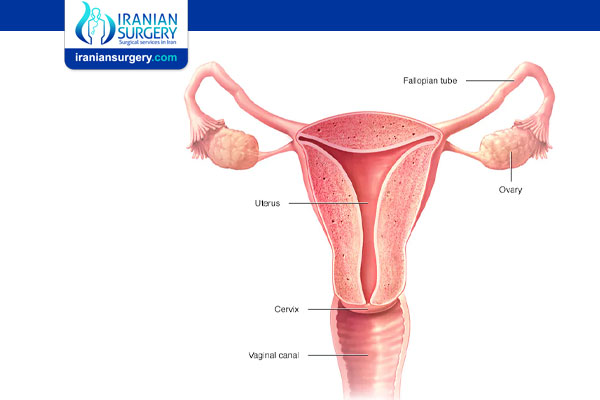Incompetent Cervix
Incompetent Cervix
What is Incompetent Cervix?
In the female reproductive system, the cervix is the lower end of the uterus. The cervix is the part of the uterus which opens into the vagina.
Before pregnancy, the cervix is normally firm and closed. During pregnancy, the cervix softens, shortens and dilates (opens) so you can give birth. Incompetent cervix occurs when the cervix opens too early and silently during the pregnancy.
Incompetent cervix is also known as cervical insufficiency. It can cause problems including miscarriage (a fetus that dies before birth) and premature birth (a baby born before organs are fully developed).
Before Incompetent Cervix Treatment
How common is incompetent cervix?
Incompetent cervix occurs in about 1 in 100 pregnancies.
What causes incompetent cervix?
Several conditions can cause incompetent cervix. They include:
. Abnormally formed uterus or cervix.
. Previous cervix surgery.
. Short cervix.
. Damaged uterus from previous miscarriage or childbirth.
. Exposure to diethylstilbestrol (DES), a synthetic (human-made) hormone given to some women in the past to help them have successful pregnancies.
What are the symptoms of incompetent cervix?
Incompetent cervix does not have signs or symptoms. Doctors diagnose most cases after a miscarriage in the second trimester of pregnancy.
Your doctor will monitor your cervix closely throughout your pregnancy if you have had previous miscarriages or risk factors for the condition. This monitoring includes a test called a transvaginal ultrasound (ultrasound using a wand inserted in the vagina), which allows the doctor to see the cervix.
Diagnosis and Tests
How is incompetent cervix diagnosed?
A doctor diagnoses incompetent cervix with a pelvic exam and an imaging test called an ultrasound. This test enables your doctor to measure the length and opening of the cervix.
What complications are associated with incompetent cervix?
Incompetent cervix can cause complications including miscarriage and premature birth. In rare cases, a cerclage may involve complications including:
. Rupture (sudden bursting) of the uterus.
. Internal bleeding.
. Laceration (cut or tear) on the cervix.
. Infection.
Prevention
Can incompetent cervix be prevented?
No one can prevent an incompetent cervix, although treatment usually works well.
What are the risk factors for incompetent cervix?
Women at higher risk for incompetent cervix include those who have:
. An abnormally formed cervix or uterus.
. Experienced a premature birth or miscarriage in the second trimester of pregnancy.
. Injured the cervix or uterus during previous pregnancy or childbirth.
. Had cervical surgery in the past.
. Been exposed to DES.
In some cases, a genetic condition or disorder can increase your risk for incompetent cervix. The genetic disorder Ehlers-Danlos syndrome can cause structural cervical weakness which can lead to cervical insufficiency.
During Incompetent Cervix Treatment
Management and Treatment
How is incompetent cervix managed or treated?
The most common treatment for incompetent cervix is a procedure called a cerclage. Your doctor will sew a stitch around the weakened cervix to make it stronger. This reinforcement may help your pregnancy last longer.
Doctors usually perform a cerclage at 12 to 14 weeks of pregnancy. The stitches are typically removed around week 37. Doctors do not use a cerclage if you are pregnant with twins or multiples. Research shows no improvement in the risk for preterm delivery when doctors use this treatment on mothers carrying more than one baby.
Sometimes doctors discover an incompetent cervix or cervix that has dilated significantly late in the pregnancy. In these cases, your doctor may recommend bed rest for the remainder of the pregnancy.
After Incompetent Cervix Treatment
Outlook / Prognosis
What is the prognosis (outlook) for people with incompetent cervix?
Cerclage treatment for incompetent cervix is successful in nearly 90% of cases.
Women diagnosed with incompetent cervix in one pregnancy are likely to have the condition in following pregnancies. Talk to your doctor about how to plan for a safe and healthy pregnancy.
When should I call the doctor?
Doctors diagnose most cases of incompetent cervix after a miscarriage or preterm birth. Contact your doctor if you experience signs of miscarriage including bleeding and contractions.
Source:
. https://my.clevelandclinic.org/health/diseases/17912-incompetent-cervix


